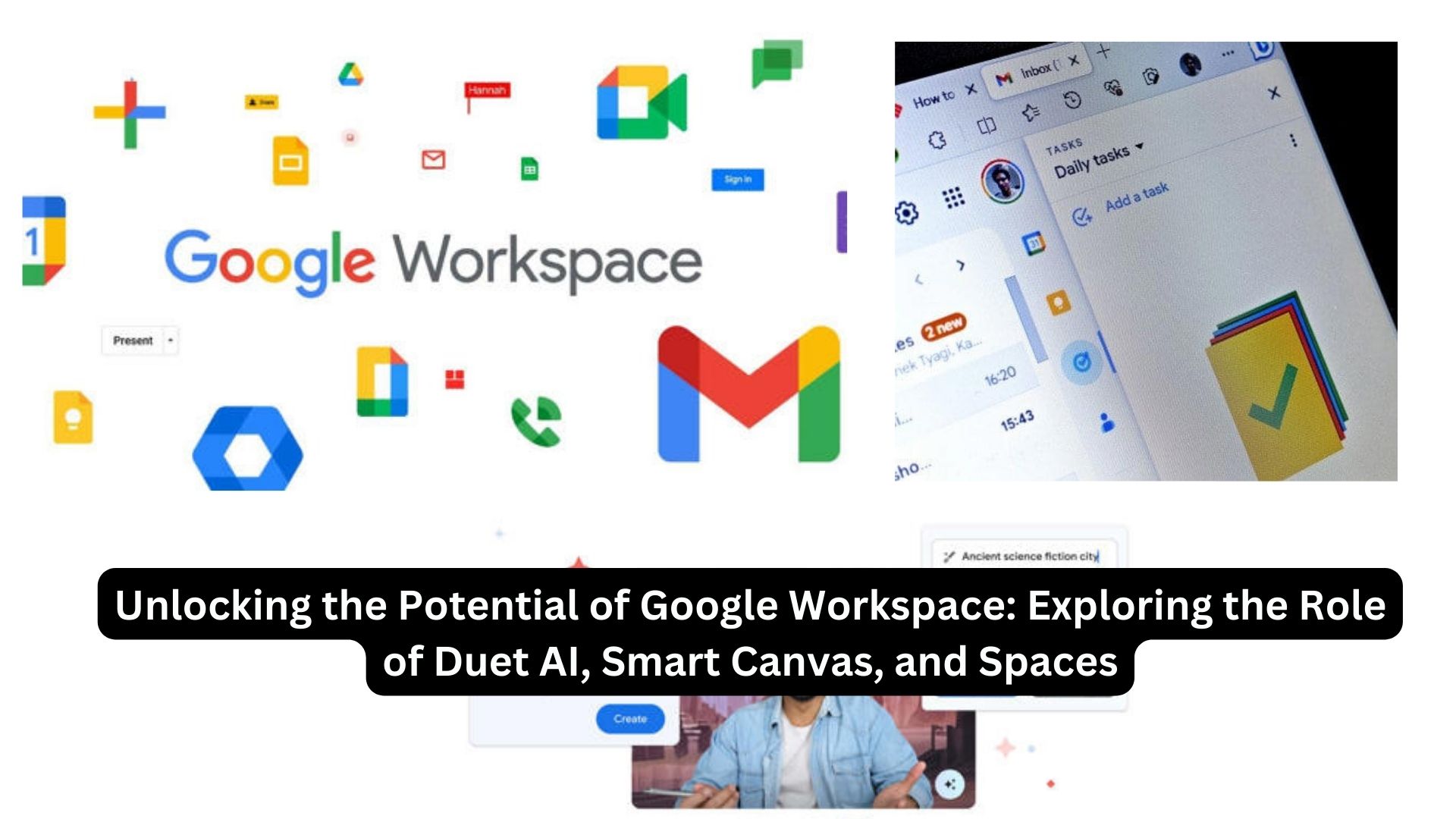
Google Workspace, formerly recognized as G Suite, stands as a steadfast offering within Google’s product portfolio. While Google has a history of introducing and discontinuing products, Workspace remains resolute as a fundamental offering. This transformation was catalyzed by the surge in remote work during the pandemic, prompting Google to rebrand its G Suite as Google Workspace in October 2020. Since then, Workspace has evolved into one of Google’s flagship products, even though it still operates at a deficit.
In the wake of this rebranding, Google did not limit itself to surface-level changes. It infused Workspace with novel features aimed at enhancing functionality and user appeal. A standout among these is Duet AI, which utilizes generative AI to assist users in tasks such as text creation, summarization, image generation from prompts, and data organization. Additionally, Smart Canvas was introduced, which seamlessly integrates various Workspace apps, promoting efficiency and creativity. Spaces, a new platform for communication and information sharing within Workspace, further diversifies its capabilities.
In this article, we will delve into the essence of Google Workspace, its integration of AI for enhanced services, and the value that Smart Canvas and Spaces bring to users.
Understanding Google Workspace
Users familiar with Gmail or any other Workspace app on desktop will recognize the left sidebar featuring icons that provide access to various Workspace applications. For instance, in the desktop version of Gmail, users can effortlessly access apps like Google Keep, Tasks, or Chat through this sidebar. Furthermore, users can open documents and spreadsheets from Gmail and collaboratively edit them in real-time with colleagues.
On the Gmail app for Android, tapping on icons at the bottom allows users to seamlessly switch between Gmail, Chat, Spaces, and Meet. Google Workspace is designed to ensure a seamless and integrated experience for users, regardless of their choice of device or platform.
Google Workspace serves as an umbrella term encompassing a suite of productivity software, including Gmail, Calendar, Drive, Docs, Sheets, Slides, Meet, and more. In India, pricing varies based on the selected plan and the number of users:
- Business Starter: ₹136 per user per month. This plan includes 30 GB of cloud storage, file sharing, video conferencing for up to 100 participants, and 24/7 support.
- Business Standard: ₹736 per user per month. It encompasses all the features of Business Starter, along with unlimited cloud storage (or 2 TB per user for fewer than five users), video conferencing for up to 150 participants with recording and breakout rooms, and advanced security and management controls.
- Business Plus: ₹1380 per user per month. This plan builds upon Business Standard by adding video conferencing for up to 250 participants with live streaming and Q&A, along with enhanced security and compliance features.
- Enterprise: This plan extends the capabilities of Business Plus, including premium support, enterprise-grade security and compliance, and customized cloud solutions with flexible pricing.
In an August 29 press release, Google CEO Sundar Pichai emphasized Google’s recent AI-centric approach to enhance product utility. This approach resulted in the creation of Google Duet, unveiled at I/O 2023, powered by the AI assistant known as Duet AI. Although still in testing, Duet AI is poised to elevate the Workspace platform, including Gmail, Docs, Slides, and more, for eligible Workspace plan users.
Google Duet empowers users to create slides with minimal text input, leaving Duet AI to handle the rest. Users can also choose graphic styles, transform Gmail emails into notes and presentations, all within Google Workspace. Furthermore, Duet AI simplifies writing tasks in Google Docs, assisting in generating content like job descriptions using prompts or text snippets, as well as visualizing data or ideas through charts and diagrams.
Exploring Smart Canvas
Google Smart Canvas represents a new product designed to streamline online collaboration, particularly in Google Docs, Sheets, and Slides. This innovation leverages smart technology to connect and organize information effectively.
Smart Canvas introduces several user-friendly features, including smart chips, table templates, checklists, a pageless format in Docs, and new views in Sheets. Despite their advanced functionality, these features are intuitive to use.
- Smart chips: These are pop-up windows that activate when typing an “@” sign in a document, enabling swift linking to related documents, task assignment, or mentioning individuals. Smart chips also display contact details, roles, and locations (if shared), allowing content preview without leaving the document or event.
- Pageless format in Docs: This feature eliminates page breaks, adapting documents to various screen sizes and shapes, making it ideal for cross-device collaboration.
- Checklists: Users can seamlessly add tasks to documents, which sync automatically with Google Tasks when assigned to someone.
- Table templates: Templates such as meeting notes can import relevant data from sources like Google Calendar invites, incorporating attendees and attachments.
Introducing Google Spaces
Google Spaces serves as a feature for creating and joining spaces or chat rooms, facilitating collaborative work, structured discussions, and group chats. It represents an enhanced iteration of what was previously known as Rooms and serves as a successor to the discontinued Google Spaces app from 2017. Spaces can be accessed via the Google Workspace UI or the Gmail app.
Spaces seamlessly integrates with Google Chat, Google’s unified messaging service. It offers advanced tools for organizing group conversations, including in-line topic threading, custom statuses, reactions, and the ability to link and add files to chats.
In summary, Google Workspace, with its innovative AI-driven features like Duet AI, collaborative Smart Canvas tools, and versatile Spaces, continues to evolve and empower users in an increasingly digital work environment. As Google remains committed to enhancing productivity and collaboration, Workspace remains a formidable contender in the realm of productivity software.
Also Read
Capturing Full-Resolution Video Frames in Google Chrome: A Step-by-Step Guide

3 thoughts on “Unlocking the Potential of Google Workspace: Exploring the Role of Duet AI, Smart Canvas, and Spaces”